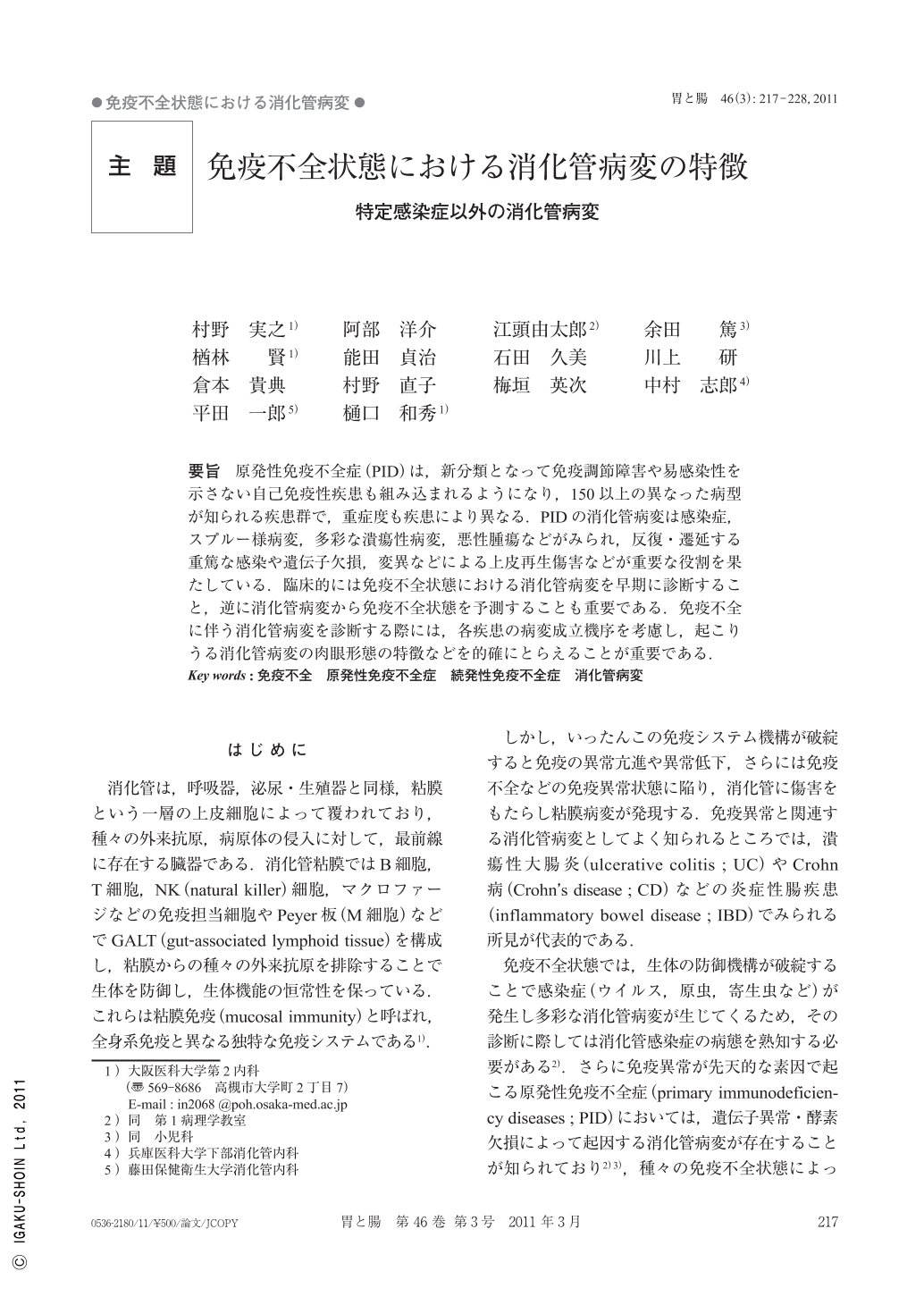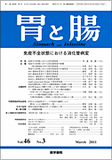Japanese
English
- 有料閲覧
- Abstract 文献概要
- 1ページ目 Look Inside
- 参考文献 Reference
要旨 原発性免疫不全症(PID)は,新分類となって免疫調節障害や易感染性を示さない自己免疫性疾患も組み込まれるようになり,150以上の異なった病型が知られる疾患群で,重症度も疾患により異なる.PIDの消化管病変は感染症,スプルー様病変,多彩な潰瘍性病変,悪性腫瘍などがみられ,反復・遷延する重篤な感染や遺伝子欠損,変異などによる上皮再生傷害などが重要な役割を果たしている.臨床的には免疫不全状態における消化管病変を早期に診断すること,逆に消化管病変から免疫不全状態を予測することも重要である.免疫不全に伴う消化管病変を診断する際には,各疾患の病変成立機序を考慮し,起こりうる消化管病変の肉眼形態の特徴などを的確にとらえることが重要である.
In the new classification of PID(primary immunodeficiency diseases)autoimmune diseases accompanied by neither immunoregulation diseases nor predictable infectivity have been incorporated, and there are 150 or more different forms in this disease group.
The gastrointestinal lesion of the PID presents with an infectious disease, a sprue-like lesion, various ulcerative lesions, a malignant tumor, and epithelium regeneration injuries due to recurrence, grave infection and gene defect, with the mutation to be prolonged play an important role. It is important clinically to diagnose a gastrointestinal lesion in the immunological deficiency state at an early stage, and to predict an unfavorable immunological deficiency state from a gut lesion.
When diagnosis of a gastrointestinal lesion with immunodeficiency is made in consideration of the establishment of the type of each disease, it is important to find the visible characteristics of the gut lesions which may occur.

Copyright © 2011, Igaku-Shoin Ltd. All rights reserved.


